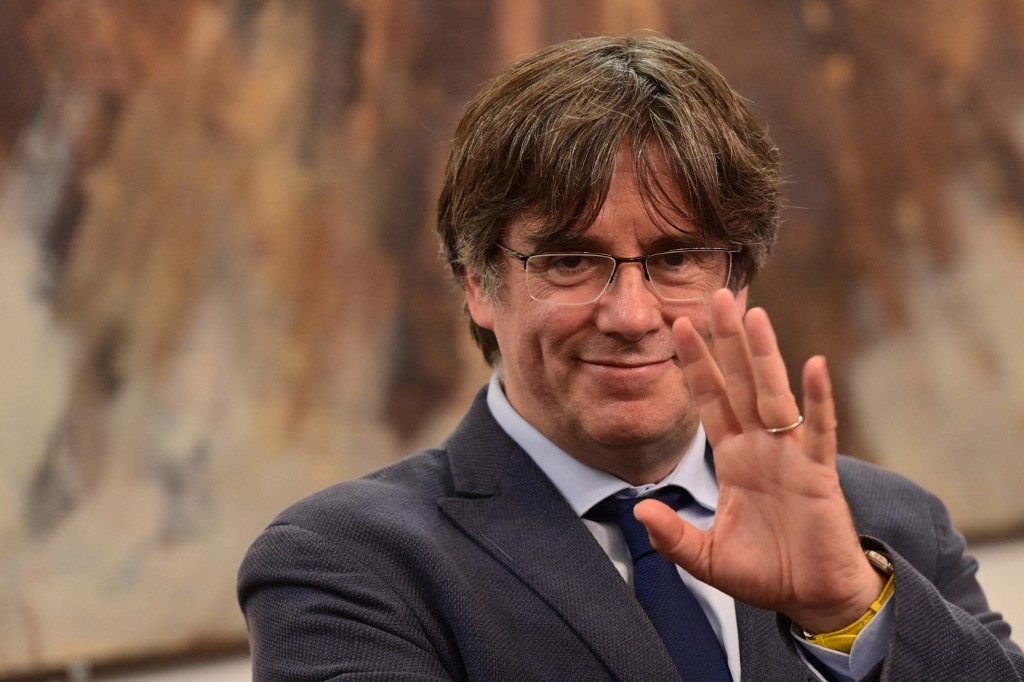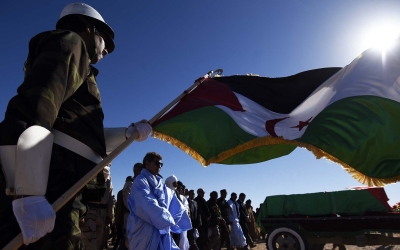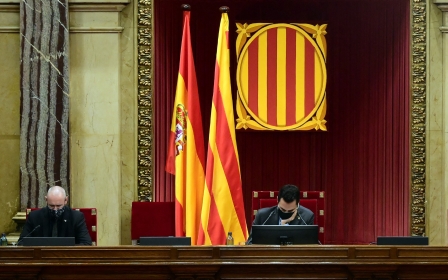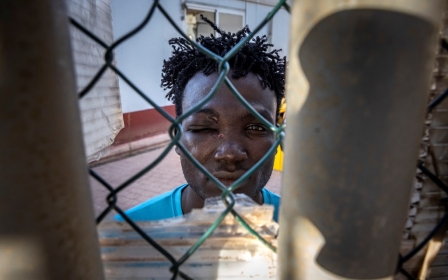Exiled Catalan leader says Melilla deaths 'a crime', calls for Spain to give up territories

The former president of Catalonia, Carles Puigdemont, has denounced the death of at least 23 people trying to cross the Morocco-Spain border as “a crime” and “a bad omen” for the future.
The exiled politician and member of the European Parliament, now based in Brussels, said that the deadly crush showed the “double standard” in the EU's and Spain's migration policies.
“Pedro Sanchez’s cynical congratulations for a police action in which dozens of people died while others were treated as if they were not human beings is proof that the cruel rhetoric on immigration is no longer exclusive to the extreme right,” he told Middle East Eye’s French website, referring to Spain's socialist prime minister.
'There must be a self-determination referendum in Western Sahara so that the local population can express themselves freely and peacefully'
- Carles Puigdemont
“This demonstrates the double standard of the EU, which creates a clear differentiation between migrants according to their origin and the colour of their skin. It is a bad omen for the times to come.”
The tragedy on Morocco’s northeastern border took place when hundreds of people tried to cross from the kingdom to the Spanish enclave of Melilla and were met with “disproportionate violence” by Moroccan police, according to rights groups that spoke to Middle East Eye.
New MEE newsletter: Jerusalem Dispatch
Sign up to get the latest insights and analysis on Israel-Palestine, alongside Turkey Unpacked and other MEE newsletters
Meanwhile, Spanish police failed to quickly aid the wounded, who were mostly people from sub-Saharan African countries.
Melilla and Ceuta, Spain's other tiny North African enclave, are the European Union's only land borders in Africa.
Puigdemont served as the president of Catalonia from 2016 to 2017. After a 2017 vote in the Catalan parliament, he declared the region's independence, a move that caused one of the most serious territorial crises of modern Spain. He was later charged with “rebellion” and “sedition” and forced into exile in Belgium, which his Spanish detractors have condemned as “fleeing” from justice.
Spain's 'paternalistic' view of the Maghreb
In a lengthy interview with MEE, Puigdemont said that Morocco “has every right to question Spanish sovereignty over Ceuta, Melilla, the Zaffarines Islands, Persil Islet and all those scattered rocks”.
“It is the remnants of European colonisation that prevent the complete normalisation of relations between Spain and Morocco,” he said, stressing that Catalonia “does not have a colonial past in the region” and that if it gains independence it will have peaceful relations with Morocco, Algeria and Tunisia.
Catalonia "has no territorial disputes with any of the three countries ... and our language has not invaded your space,” he said.
Puigdemont voiced his support for the independence of Western Sahara from Morocco. “There must be a self-determination referendum in Western Sahara so that the local population can express themselves freely and peacefully.”
He also said that in his capacity as MEP he has a duty to bring attention to the Spanish army’s “chemical war” in the Rif war in 1921-1927 in northern Morocco.
“We must be able to revisit this part of the story, clarify the facts and delineate responsibilities in order to initiate the necessary reparations, from Spain but also, I repeat, from the European Union.”
Concerning the recent diplomatic crisis between Spain and Algeria as a result of Spain’s support for Morocco’s sovereignty over Western Sahara, the Catalan politician said he was surprised by Madrid’s change of position.
“Spain has a paternalistic and somewhat colonial vision of this part of the world. Reducing the Western Sahara conflict in such a simple way by taking a decision of this type, frankly, I cannot explain this serious mistake.”
Middle East Eye delivers independent and unrivalled coverage and analysis of the Middle East, North Africa and beyond. To learn more about republishing this content and the associated fees, please fill out this form. More about MEE can be found here.





